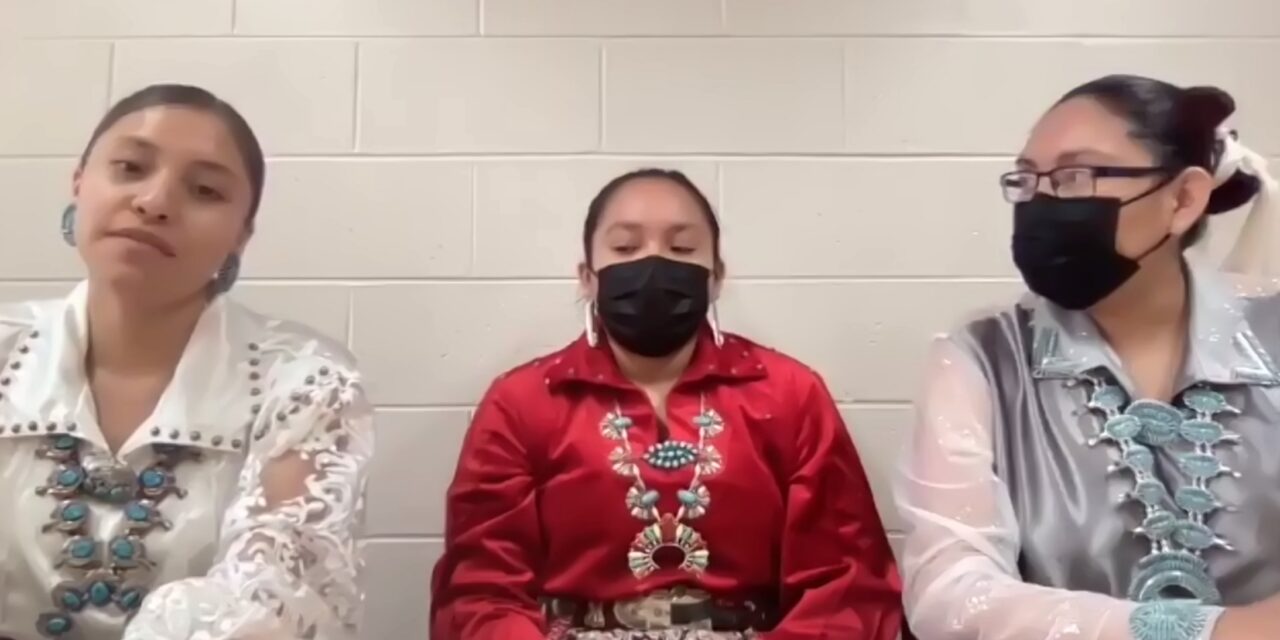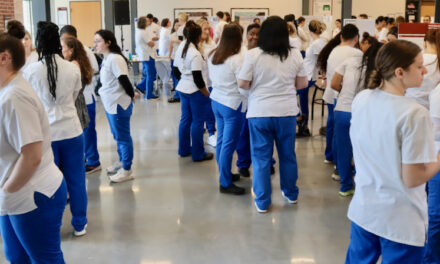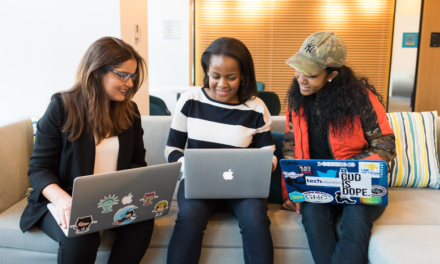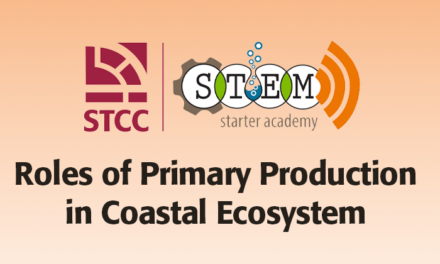Springfield Technical Community College’s “We the Women” series on Nov. 29 honored Native American Heritage Month with a special student edition.
The live virtual event featured personal stories by three Diné (Navajo) students who enrolled at STCC this fall. Student Melissa Chimunye, who is from Zimbabwe and part of the LEAD Leadership and Mentoring Program, introduced the panelists Quiana Dishface, Lakoda Jim and Zoey Lynn Natonabah.
“These three students came a long way to STCC,” Melissa said.
Quiana grew up in Utah. Zoey and Lakoda come from New Mexico. They chose STCC because of the strong academic programs and also to play basketball. They are part of a diverse team coached by Ed Guczek.
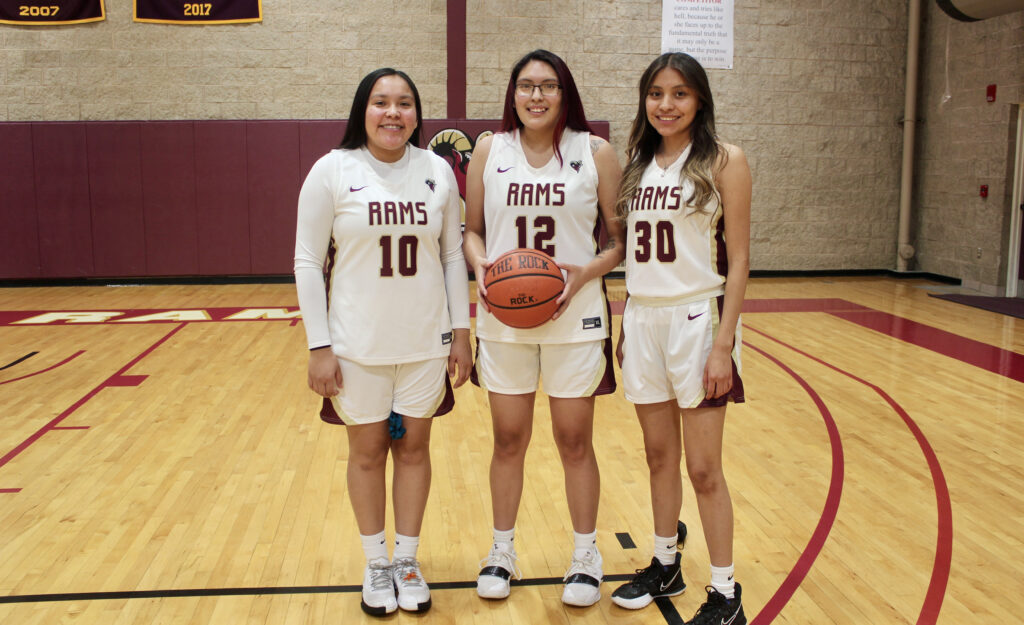
The three students answered questions about their culture, describing what it’s like to live on a remote reservation and sharing some of the obstacles and prejudice they faced.
Lakoda recalled how bright stars filled the night sky where they grew up. New Mexico, she said, is known as “the land of enchantment.”
“Back home, my back yard could go on for miles. There are mountains, shrubs and herbs. It’s a big open area,” Lakoda said.
But getting around to destinations is much easier in Western Massachusetts, she said. Her high school was about an hour from her home and the bus traveled over dirt roads. Getting food and other products and services is more of an ordeal than in the Springfield region.
Quiana described some of the racism and negative comments she faced when she left the reservation to go to school in the seventh grade.
“I wanted to gain more opportunities. I wanted to see what it’s like, and my parents supported me,” Quiana said. “I started going to school in Blanding, Utah, which is … was … a very prejudiced town.”
Erasing stereotypes about Native Americans
Quiana said her decision to go to school in Blanding helped erase long-held stereotypes and improved attitudes toward Native Americans.
“When I went off the reservation, I didn’t know what to expect. I had a talk with my parents and they told me that you’re different. Your skin color, the way you think, the way you are … the way you breathe. Everything about you is different.”
Quiana said she had a hard time getting accepted by her classmates. “I felt like nobody would talk to me. Nobody wanted to listen to me. There were Native Americans who went to school there, but they had been there their whole life. They didn’t live on the reservation like I did.”
When she went back home, Quiana told her mother about her treatment. Her mother responded, “You wanted to go there. Are you going to be strong enough to go?”
Quiana decided to return to the school in Blanding. She started to approach people and ask questions. She met a Navajo classmate. Her experience became more positive.
“Things started to change when sports came around,” Quiana said.
She participated in cross country and discovered she was faster than the boys and the girls. On the volleyball team, she hit the ball harder than anyone else. She joined the basketball team and excelled, but also faced racism.
Helping to change minds through action
“During my first game, parents were asking why is a person of color playing on the varsity team, starting above my daughter, who is white?”
Quiana said her basketball coach supported and defended her. The coach would tell the parents their daughter wasn’t putting in as much work as Quiana.
As she continued to play basketball and volleyball, her teammates and others took notice of her talent. She also gained friends.
Through her actions at school, she was able to help erase some of the negative stereotypes about Native Americans her classmates picked up from their parents.
“They met me and they noticed those stereotypes were wrong and those stereotypes weren’t anything of what I am,” she said. “As time went on, they started to accept me for who I am. They started to accept me as a person.”
In eighth grade, Quiana finished the year with awards. She won most valuable player for basketball and volleyball. She also received the math award.
“We had 200 students and out of all those people, I got those awards. Parents started to cheer me on. As time went on, I went through high school and they started to accept me,” Quiana said.
Quiana felt that her presence at the school helped change the way people thought about Native Americans.
“Even today, that town supports me. They know who I am and they know my little siblings,” she said. “I changed the way they thought about us. Now everybody in that town wants to know more. They want to understand where I come from. They’re interested in my culture. They helped me put together a pow wow in the town.
“Even coming out here, they supported me in being able to travel across the country in order to play basketball and be who I am,” Quiana said.
At STCC, Quiana, Lakoda and Zoey are balancing their academics with their love for basketball. Quiana wants to focus on a biology-related major. Lakoda and Zoey hope to go into nursing.
The women’s basketball team plays its next home game on Dec. 11 against Bristol Community College.

